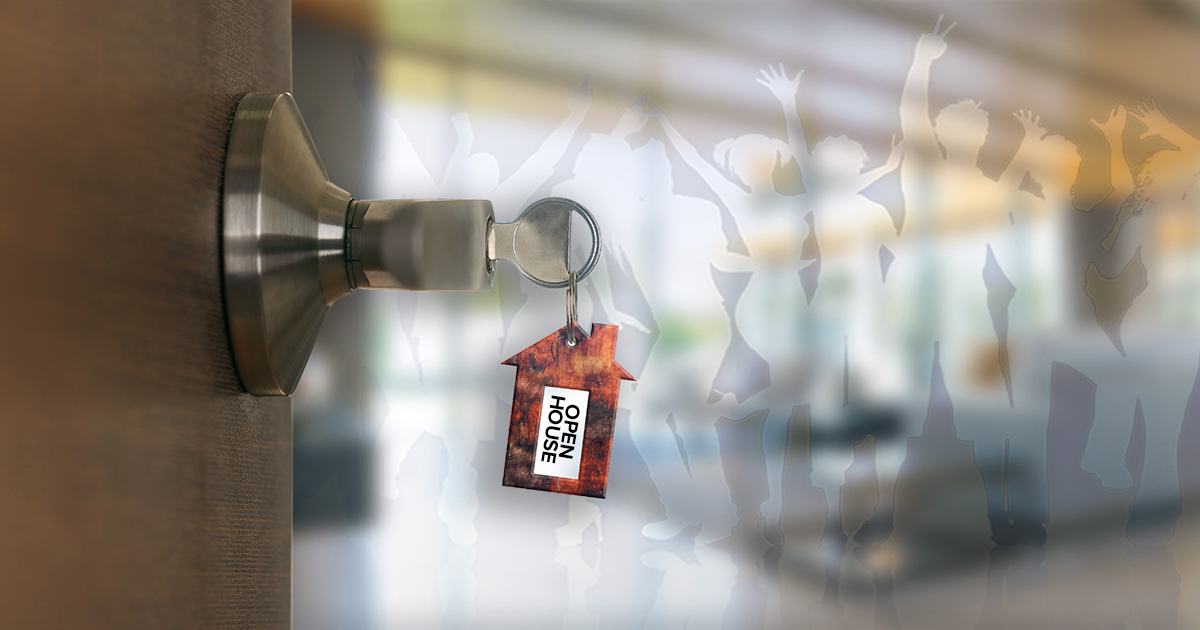
The screen flickers on. A charming real estate agent, smiling brightly, introducing her company while an upbeat tune follows her down the hallways. Sweeping drone footage of a beautiful home, followed by panning shots of its rooms, underscored by stirring classical music. A video tour of the neighborhood, local coffee shops and lush green parks, accompanied by a ditty that’ll stick inside your brain. An open house, pleasantly elevated by a curated playlist.
Amazing. I’m pulling out my wallet and buying every property you have.
Another screen flickers on. A nervous real estate agent, fiddling with her sleeves, meekly showing the empty, silent halls of her offices. A static photo of a house, followed by pictures in which you can clearly see the agent in every reflective surface, displayed in total stillness. Phone camera footage of the neighborhood, with only the sound of the cameraman’s flip flops slapping the pavement. An open house, with everyone standing around in awkward silence, nibbling on cheese sticks.
Garbage. I’m burning down my house to avoid even passing association with the concept of real estate.
Look, you could have the best property in the world, the charm of George Clooney, and the salesmanship of Dale Carnegie, and you’d still fall flat on your face if you don’t know how to present your product. In today’s age of social media and viral videos, image is important and you have to be able to stand out in a growing crowd. One often overlooked aspect of selling real estate is 🎶music🎶.
When you start thinking about it, you’ll see examples everywhere. Soundtracks to events, music piped into lobbies and elevators, mood-setting tunes in promotional videos, hold music for your firm’s phones, autoplay music on your website (if you hate your clients).
The video thing is particularly relevant. Research conducted by Google and the National Association of Realtors shows that 36% of potential customers watch real estate videos, and of those, 70% watch video home tours. That’s a decent amount of people even before you consider that the 36% number would probably be higher if more agencies offered videos in their sales pitches, since properties with videos receive four times more interest than those without. You don’t need to splurge on a virtual reality first-person house tour, but a sad silent Powerpoint isn’t exactly inviting.
All this to say that those in real estate have a lot of good reasons to be paying more attention to music, and more are likely to do so as awareness of these factors spreads… which could potentially mean a heap of legal trouble for anyone recklessly violating audio copyright laws.
“But Chris! I already subscribe to Spotify, Apple Music, and any other music service of your choice! I’m in the clear!”
Nope. Honestly, it’s a fair mistake. People are so exposed to music everywhere they go that they take its use for granted. Music subscription services explicitly outline limits in their terms of service, and these consumer music licenses don’t let you use the music in public settings or for commercial purposes. If you want to do that, you’ll need a PPL: a public performance license. You might actually need two, depending on the song. A song can have multiple copyrights: the copyright to the actual composition, and the copyright to the recording. If you want to use a chart topper, this might run you into the thousands, but a lot of musicians and companies have good deals on royalty-free music (meaning a one-time fee for use and no ensuing royalties) or reduced price due to expired copyright (public domain compositions where you only have to pay for the recording, for instance).
“But Chris! That all sounds like hard work! Can’t I get away with using recorded music once?”
You probably can, but there are two things to consider. First, it’s not fair on the artists you claim to like to essentially rob them. Obviously, it’s not exactly the crime of the century, probably a fraction of a penny, but it’s the principle of the matter and the fact that this is happening on a big scale. If that doesn’t sway you, maybe the threat of penalties from $200 all the way up to $150,000 might.
Whether you choose to purchase a license from a performance rights organization, go through a subscription playlist company, or hand-pick royalty-free indie songs, keep in mind that, as always, a little preparation can save you a world of pain.
